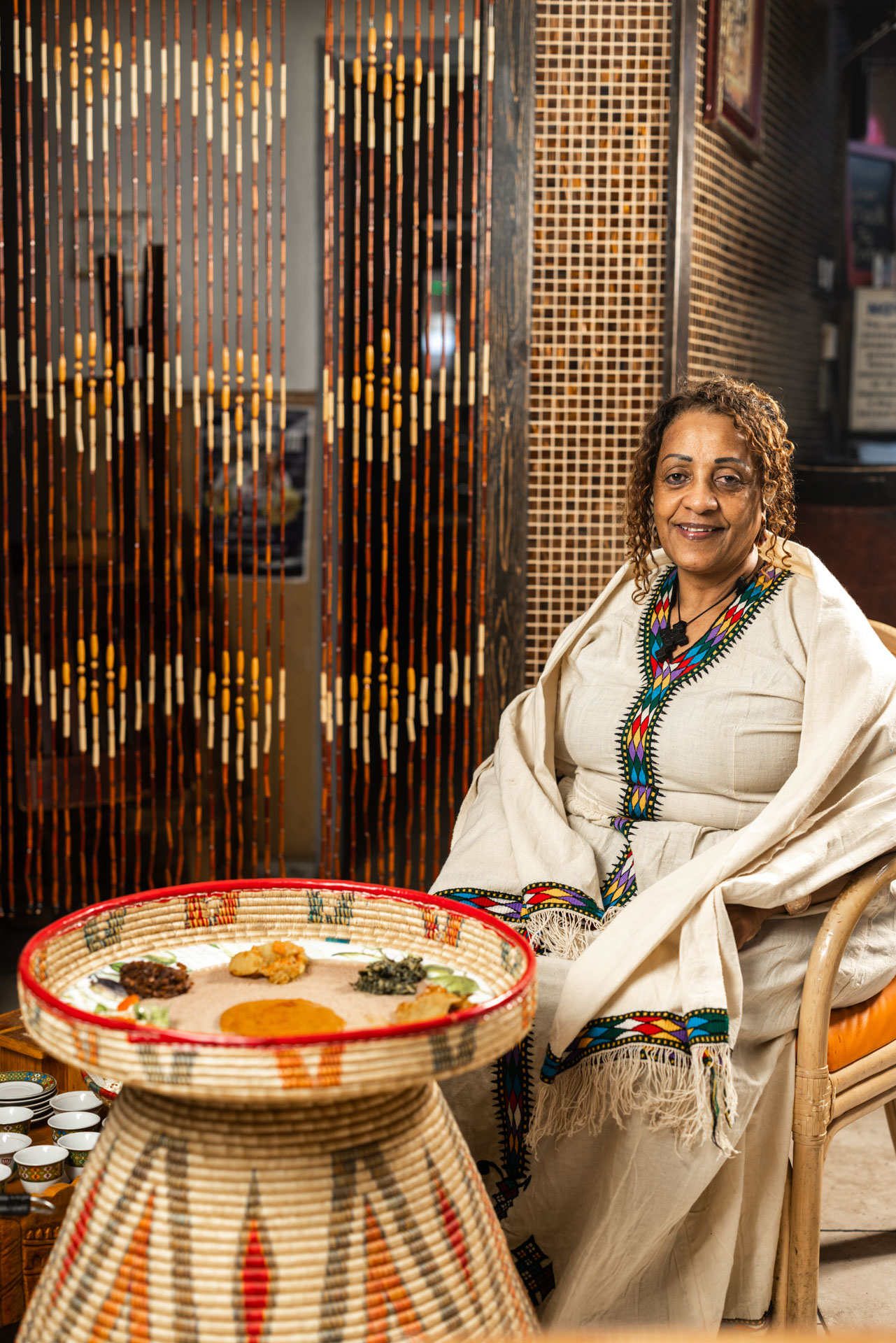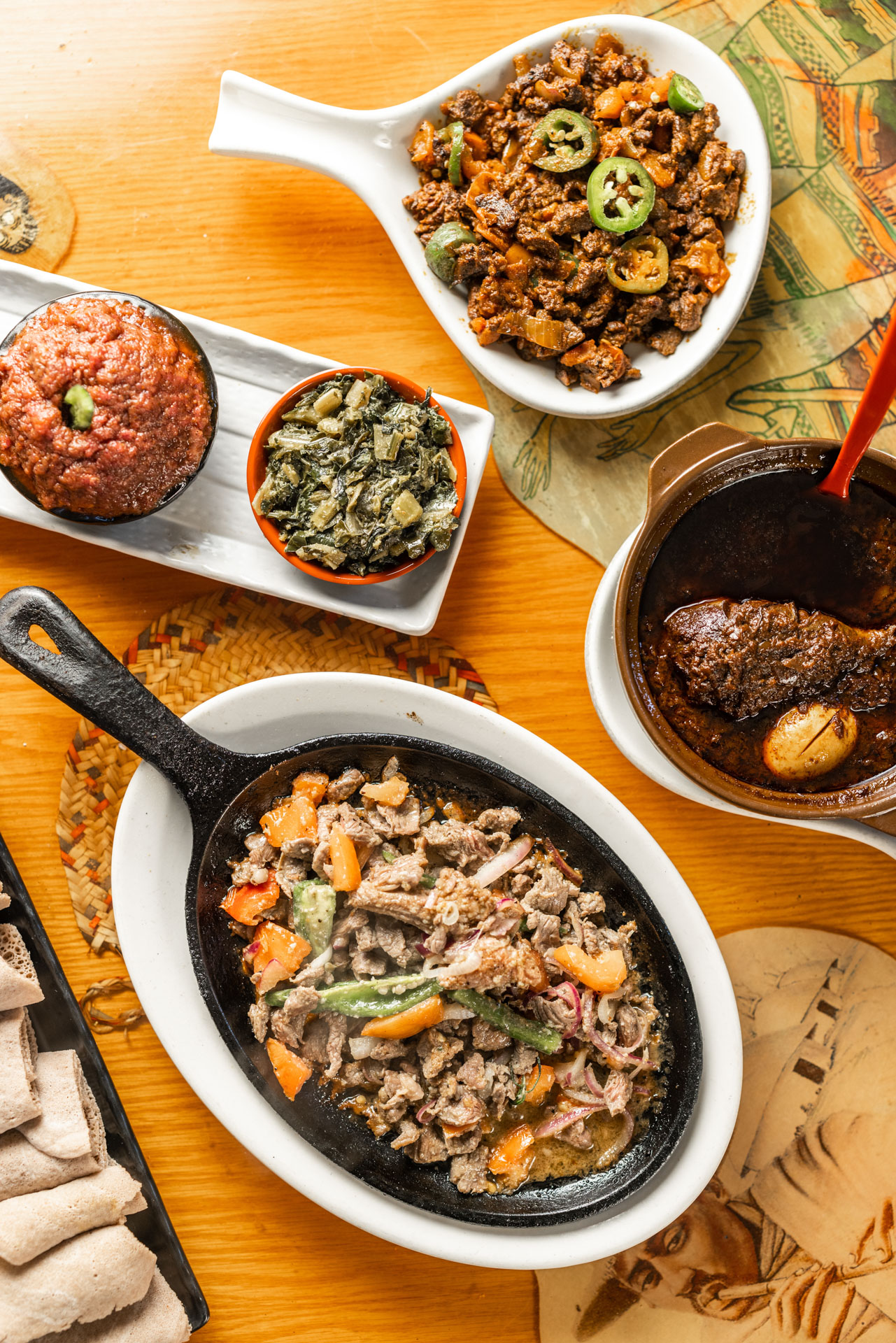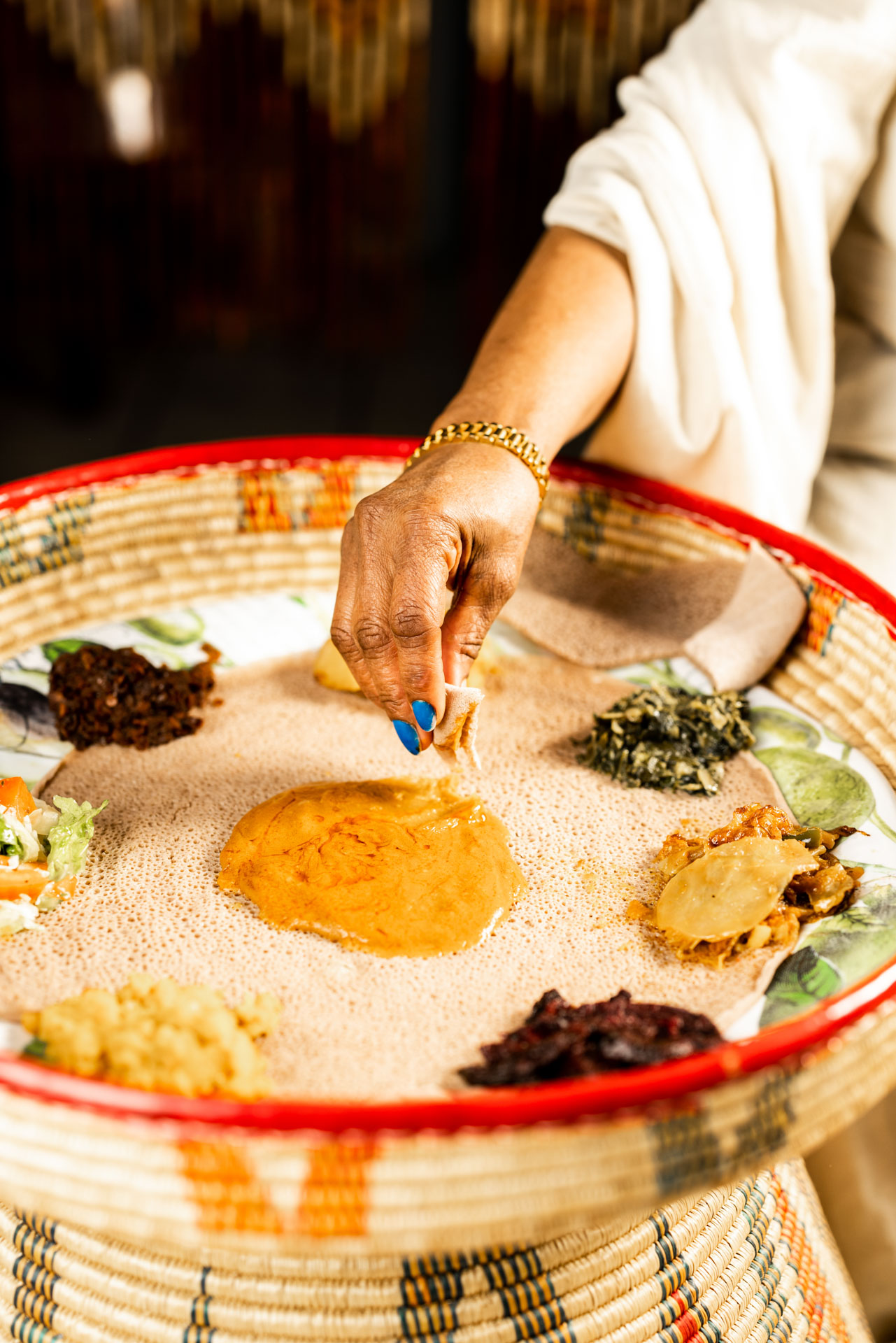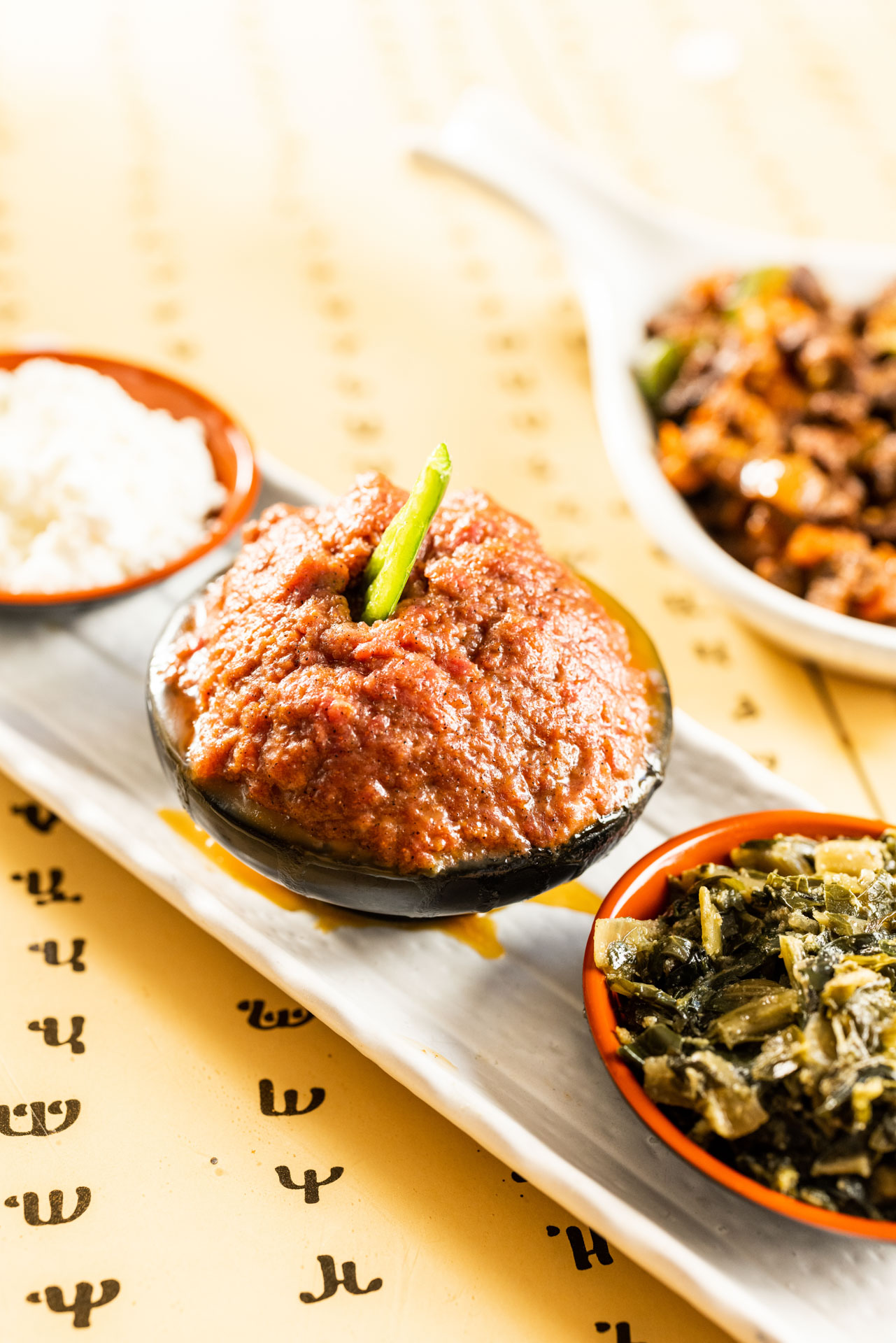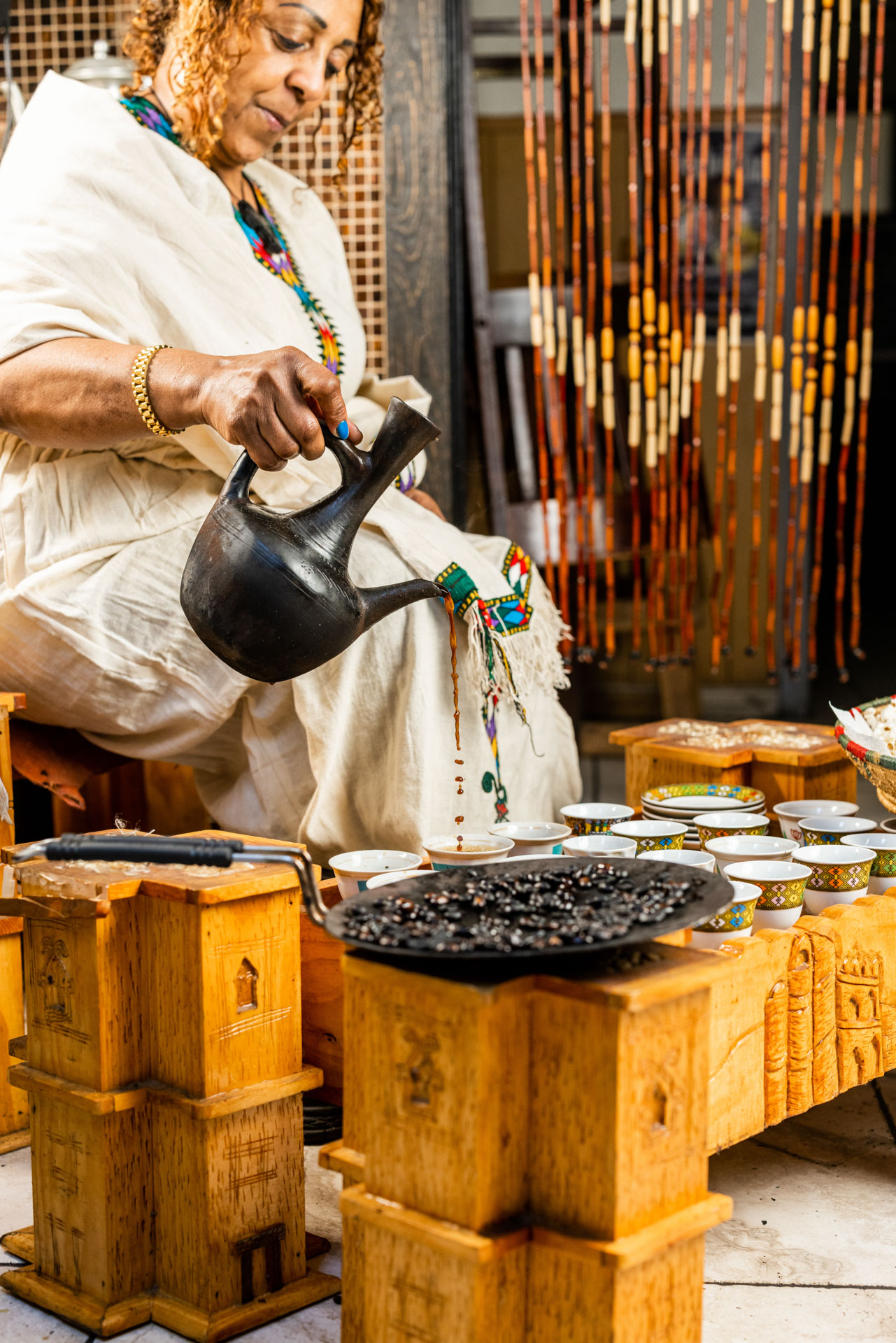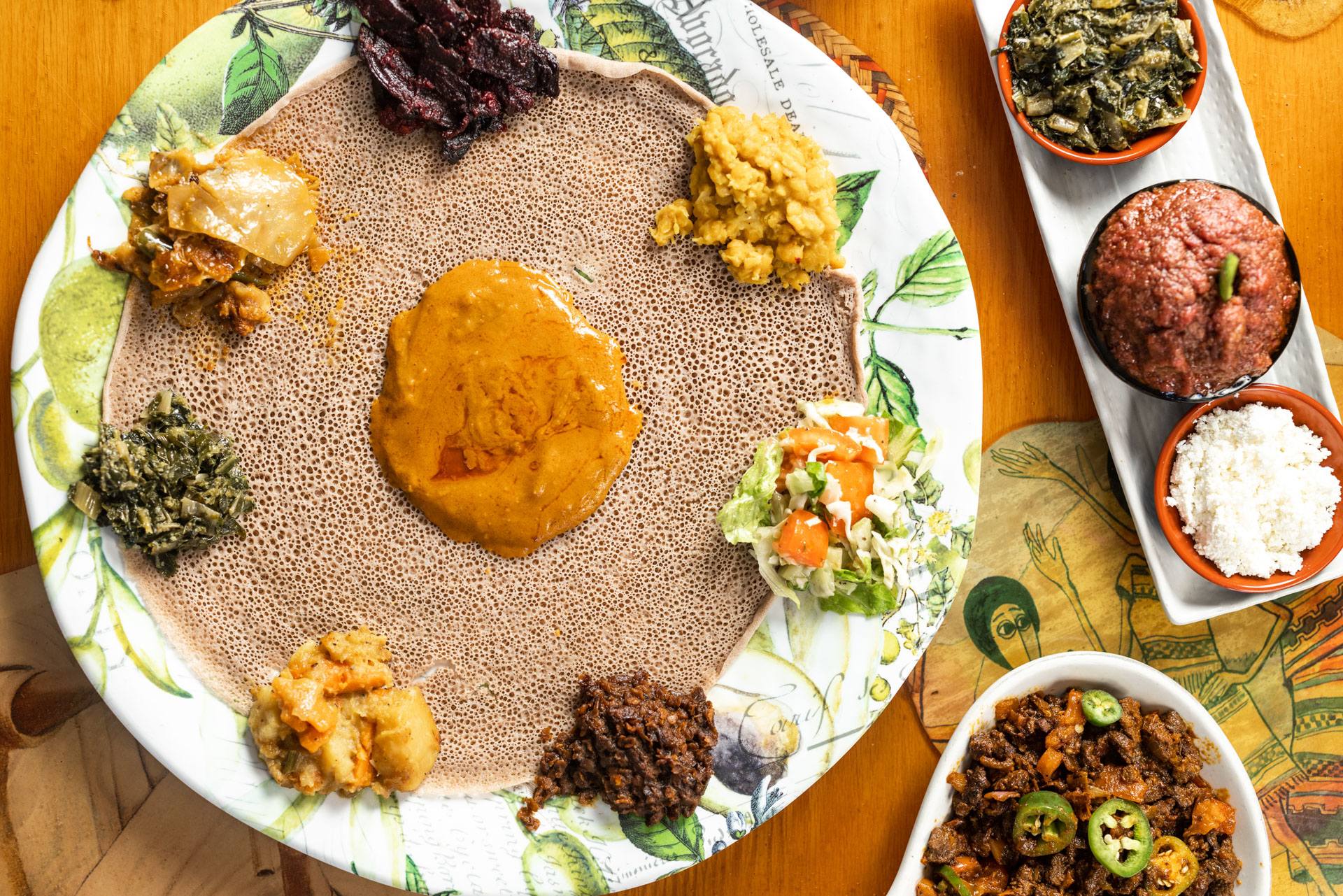
For over 21 years, Laliber Restaurant & Bar has been serving flavorful and authentic Ethiopian dishes in Lake Highlands. Owner Etsegenet “Genet” Mulugeta, an Ethiopian native, has a knack for creating her own twist on traditional recipes.
When regular customers arrive at Lalibela Restaurant they know to ask for Mulugeta, as her cooking has become a crowd favorite throughout the years. She does it all, including working behind the kitchen, cleaning and serving food to guests.
“Customers keep coming back because of my food,” Mulugeta says. “I just cook things like how I typically do back at home, nothing changes. I always taste everything before it goes out to make sure it is done right.”
Growing up in Ethiopia’s capital city, Addis Ababa, Mulugeta’s mother owned a restaurant, and she was always around food. Mulugeta moved to Dallas in 1983 and held several jobs, but she often cooked for friends and family in her free time and received compliments for her meals.
“Whenever someone came to my house, they kept asking me, ‘Why don’t you start a restaurant?’ So at that point, I knew I was a good cook and that anything I touched was going to be a miracle,” Mulugeta says.
For a brief time, she worked in another Ethiopian Restaurant called Abyssinia Grocery and Ethiopian Food. She was inspired to open Lalibela in 2001. Lalibela was named after a popular town and tourist attraction of historic rock-cut churches in Ethiopia.
“My family is also from Lalibela,” she says. “Whenever people hear Lalibela, they know exactly what it is, and so I wanted the name to reflect this beautiful city.”
Mulugeta prepares and cooks everything from scratch. Part of the dining experience at Lalibela is eating with one’s hands, instead of utensils, in the traditional Ethiopian style. Injera flatbread can be used as a vessel to pick up the vegetables and meats in each plate at Lalibela.
Upon request, customers can even eat out of a traditional mesob, a handmade basket that is used to store the injera, meats and side dishes. The purpose is for everyone to sit and eat around the mesob, family style.
“This is what we eat with back at home,” Mulugeta says. “We don’t eat by ourselves and we always share with others. It’s a big part of Ethiopian culture and tradition.”
Lalibela’s menu includes choices of beef, chicken and vegetable options, as well as some breakfast items such as kinche, lamb stew, quanta and kitafirfir. However, if there isn’t something on the menu, Mulugeta says she can accommodate that request.
“Even if it’s not on my menu, I will make it for them,” Mulugeta says. “If they want breakfast at dinner, I can easily make them some eggs.”
Dessert also isn’t on the menu, but she can prepare her own beignets, donuts with honey or baklava.
One important aspect of Ethiopian culture is a traditional coffee ceremony, which customers can choose to partake in at Lalibela by dressing in Ethiopian attire and drinking from a sini cup that is placed on a rekebot table. During the ceremony, the espresso beans are ground, roasted and made right in front of the guest to take in all of the aroma and sensation.
For those who aren’t coffee drinkers, there’s also a small open bar with a selection of Ethiopian beers, an Ethiopian honey wine and various liquors. You can also jam out to the Ethiopian music that’s played while you have a drink.
The restaurant’s decor is inspired by Ethiopian art and design. Many pieces in the restaurant were even made in Ethiopia, including a curtain with the restaurant’s name written on it as well as the leather and calfskin menus and table cloths. There are paintings of Ethiopian figures and instruments on tables throughout Lalibela. The atmosphere is very Ethiopian according to Mulugeta, and she says that for a lot of Ethiopian people that come in, it reminds them of being back at home.
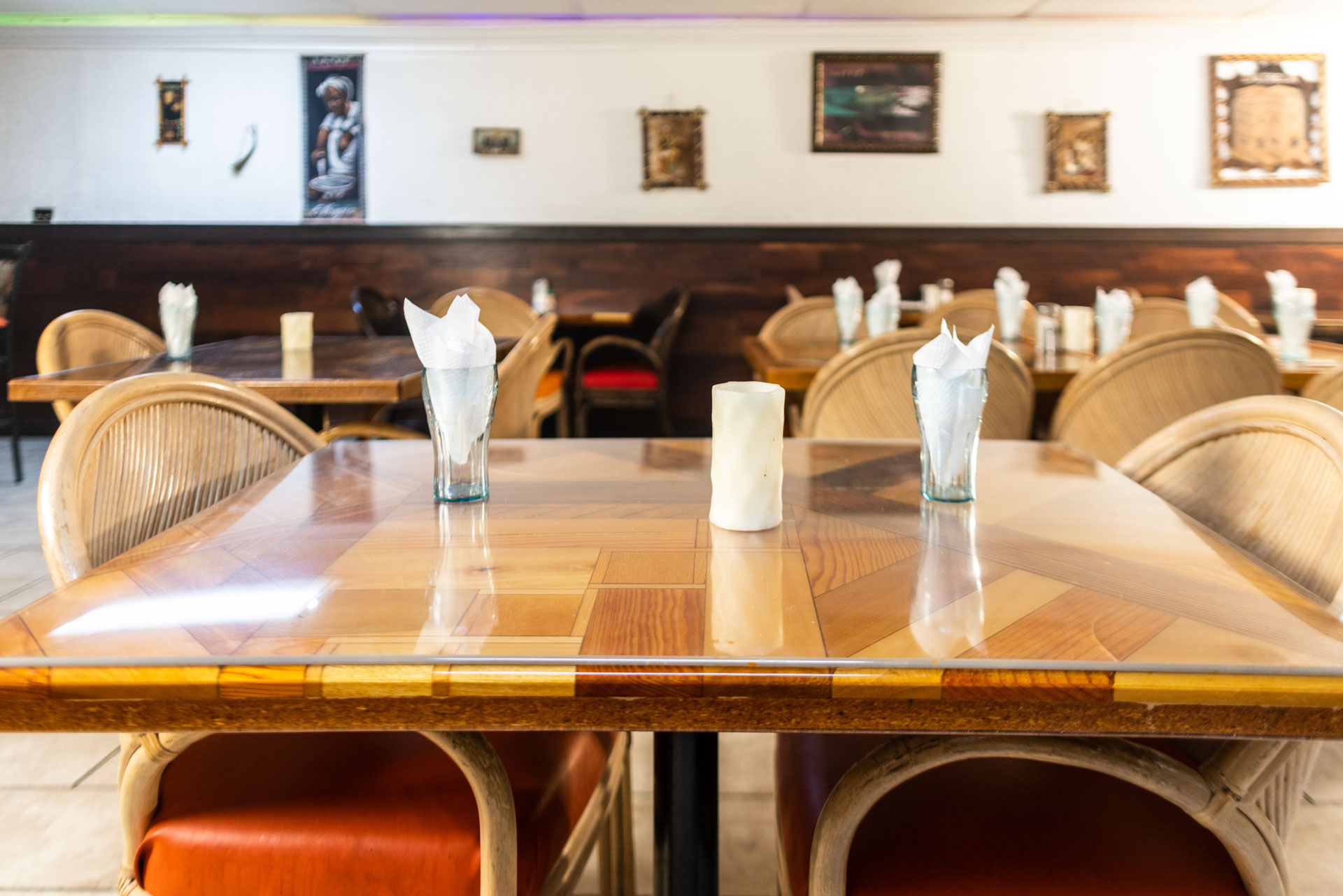
“When they come here, they love it because it feels like they are actually in Ethiopia,” she says. “Since Lalibela isn’t too big or small, it gives a very comforting, homey and cozy space. It’s exactly how we decorate over there, and it’s nice when customers can see each other without having to feel lost.”
Mulugeta says her favorite piece of art in the restaurant was given to her by a patron who was a student at Southern Methodist University. It shows several people eating in the Lalibela.
“She asked me one day if she could draw a picture for me,” Mulugeta explains when asked about the painting. “When she finished, she gave it back to me saying that it was a drawing of my customers.”
Mulugeta works six days a week from opening at noon to closing at midnight.
“Ever since I came to America, I’ve always been working hard,” she says. “Even though my kids are grown, I still want to have something for myself.”
Her son, Sirak Teferra, helps out around the restaurant by serving and cooking for customers. However, he says he believes his mom is the true star of the show.
“My mom is the definition of this place. She is what makes Lalibela an extension of Ethiopian culture,” he says.
In the 21 years that Mulugeta has been in business, she says that her favorite part about coming to work is the customers and making them happy.
“I know them as family and they are very loyal in coming back,” she says. “If I see someone not eating, I always check on them and ask them how the quality of my food is or if everything is OK.”
As for the future of Lalibela? Mulugeta hopes that her son can one day take over.
He says with a smile, “That is if I can learn to get her recipes down.”
Lalibela Restaurant & Bar, 9191 Forest Lane, www.lalibeladallastx.com

